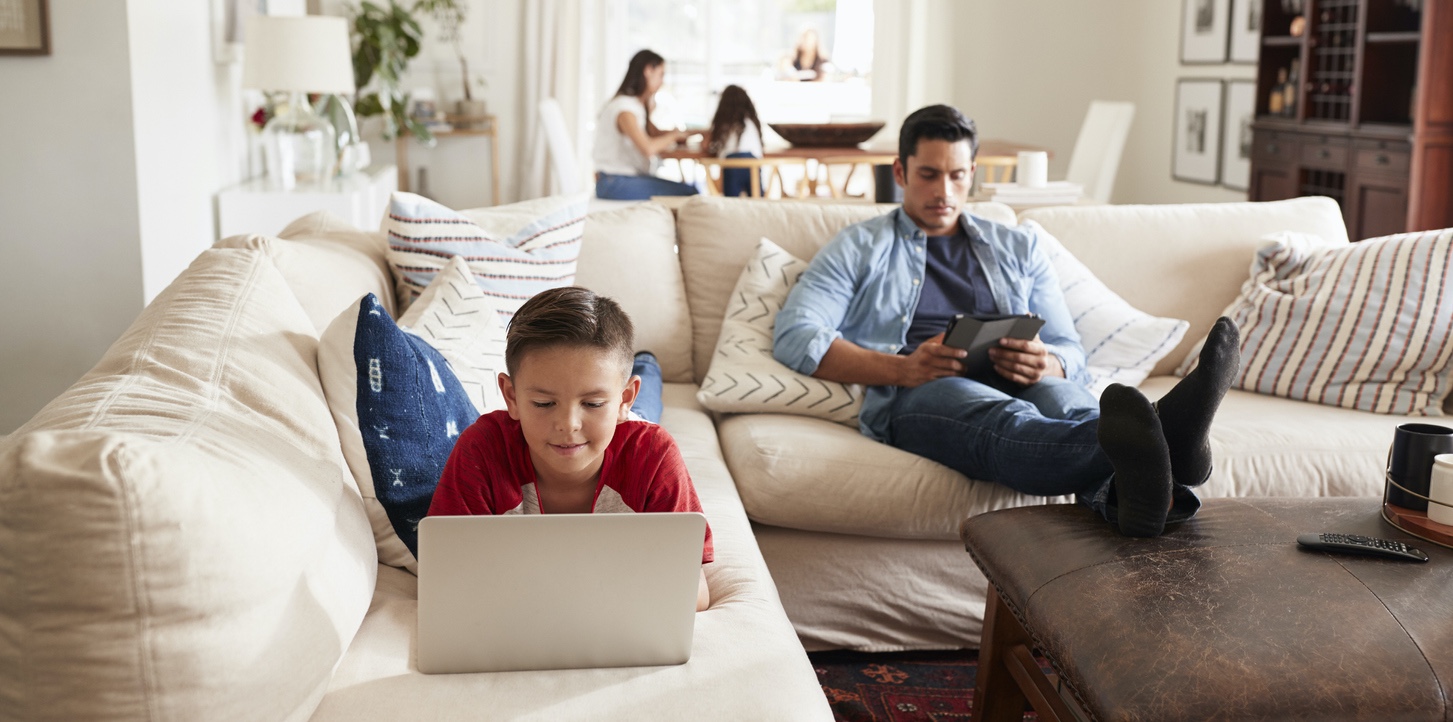One year ago, many of us we went about our lives much like any other year, at the beginning of a new one, ready to take on the challenges we set for ourselves or whatever life brought our way. For most of us, a pandemic was nowhere on our minds. Now 12 months later, we have collectively developed a heavy dependence on the internet as we fight the pandemic by staying home and keeping away from each other. We have made many sacrifices in the hope of keeping our family and our communities safe; one of them is to our online privacy.
Our choices to go to work or school from home, shop online, stream movies, play in online video game spaces, or connect with family and friends through social media or video chats help to control COVID-19; but each of these actions leaves a digital trail of our personal information. Consequently, the accumulation of details about our lives lived online are held by 3rd parties; some of them we may know and trust, and others we may not. Regardless, we should not be penalized for doing the right thing. Choosing to stay home and do more online should not be a free pass for others to take advantage of our benevolence.
Today, let’s make a new year’s commitment to protect our online privacy more fiercely than ever.
 Take Action Today
Take Action Today
Data Privacy Day, celebrated annually on January 28, is a day to raise awareness about online privacy issues in an increasingly connected world. Here are 2 things you can do today to protect your family’s privacy.
- Do a digital cleanse. The most important New Year’s resolution we can make is to kick off the year with a fresh start with our connected devices. By shedding the apps, programs, emails or websites that you no longer use, you will limit the number of access points to your personal information.
- Review everything you use to connect to the internet and every app or program you use on it. Delete apps or programs you no longer use.
- Remove contacts from your address books that you no longer need.
- Make a habit of reviewing the privacy settings of all the apps and sites you use frequently, as they may have changed, and set or re-set them as needed.
- Unsubscribe from emails you no longer wish to receive.
- Back-up your files and photos, and make sure any updates are done for your devices and apps – now and on a regular basis.
- Make sure the devices and apps your family uses have the highest level of security and privacy protection.
- Change your passwords and make them as long as possible. Use 2-step verification (also known as multi-factor authentication) on any game or app that offers it.
- Turn off location tracking for your camera and for any apps that don’t need it.
- Establish good privacy habits. Every free online service, from search engines to social networks, actually costs us – we can see or find anything we want online, but only if we are willing to give up an enormous amount of personal information; some of this we consciously give up, like our names and email addresses, and some we don’t, like our whereabouts or online actions. Encourage your family to have a privacy mindset and make it a skill they can practice every day:
- Talk to your kids about the internet as a public place. As much as we should use privacy settings to help us protect our privacy, we should assume everything we do, search, click on, watch, etc. is tracked and could be made public. Behave online as you would in public.
- Encourage your kids to look for the privacy settings in the apps and games they love to use. Help them learn to protect their own privacy whenever possible.
- Discuss what you as a family value in terms of privacy, and encourage your kids to respect the privacy of others. Don’t post or share information about other people online without checking with them first. If you’re not sure, it’s best not to share.
- If your children are attending school in a remote setting, make sure you understand the teachers’ policy around turning cameras on. If it is not necessary, it is the best way to protect the privacy of your home life. If it is necessary to have cameras on, make sure your child is situated in a place that does not give up too much personal family privacy as a result. Or talk to the teacher about alternative options if it’s still a concern.
Online privacy is priceless and we must help our kids and ourselves protect it at all costs. While some responsibility for this lies with the creators of the devices, apps and online services we love, our schools and our government officials, the best way to help each person be a strong guardian of their online privacy is to practice it ourselves and teach those closest to us to do the same. Moreover, protecting our family’s online privacy is not just a matter of turning on a single setting and forgetting about it. It’s a series of good habits that should be practiced for a lifetime.
Lynette Owens is Vice President of Consumer Education & Marketing at Trend Micro and Founder of the company's signature Internet Safety for Kids and Families program. With 30+ years in the tech industry, Lynette oversees global initiatives to help deliver the technology tools and education that people of all ages need to keep themselves and their families safe online. She serves on the advisory boards of the Identity Theft Resource Center's Alliance for Identity Resilience, the Global Anti-Scam Alliance, and INHOPE.
